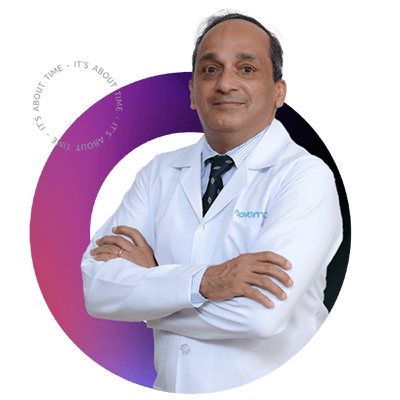Colorectal cancer, also known as colon or rectal cancer, is a form of cancer that originates in the colon or rectum.
Benign polyps form first on the colon’s lining, marking the beginning of colorectal cancer. Some polyps have the potential to develop into cancer of the colon or rectal area. In most cases, progressing from polyps to aggressive cancer takes a long time.
Symptoms of colorectal cancer
Many individuals with colorectal cancer do not experience any symptoms in the earliest stages of the disease. However, as the disease progresses, it may exhibit a variety of symptoms, including:
- Persistent diarrhea or constipation
- Changes in bowel habits
- Rectal bleeding or blood in the stool
- Persistent abdominal discomfort
- Changes in eating habits
- Unexplained weight loss
- Weakness and fatigue
Typically, these symptoms do not indicate colorectal cancer. However, if you observe unexplained changes that persist for longer than two weeks, It is essential to consult a healthcare professional.
Colorectal cancer screening tests
Screening tests enable your doctor to detect polyps or cancer prior to the onset of symptoms. This early detection may prevent polyps from developing into cancer and could expedite treatment at the most effective time.
Although it is generally recommended to begin screening at age 45, your family health history and risk factors may require you to begin screening earlier.
Types of Colorectal Cancer Screening include:
- Fecal occult blood test (FOBT) and fecal immunochemical test (FIT)
These tests examine stool (solid waste) for blood that can only be detected using a microscope. A small stool sample is deposited on a special card or in a container and returned to the physician or laboratory for analysis. The presence of blood in the stool may indicate the presence of polyps, cancer, or another disease.
- Sigmoidoscopy
A sigmoidoscopy involves inserting a flexible, illuminated tube into the rectum and lower intestine in order to detect polyps, cancer, and other disorders. During this screening, the physician may extract polyps or other tissue samples for further inspection.
- Colonoscopy
This is similar to sigmoidoscopy screening, except the doctor employs a longer, thinner, flexible, lighted tube to examine the rectum and entire colon for polyps or cancer. During the exam, the physician can detect and remove the majority of polyps and some tumors. A colonoscopy is also used as a follow-up test if one of the other diagnostic tests reveals an abnormality.
- Virtual colonoscopy
Virtual colonoscopy is a technique that employs computed tomography, a series of X-rays, to create images of the colon. A computer combines the images to produce comprehensive images that may reveal polyps and other abnormalities on the colon’s inner surface. This procedure is also known as CTC or computed tomography colonography.
Colorectal cancer prevention guidelines
While there’s no sure way to prevent colorectal cancer, reducing the risk or at least detecting it in its early phases through a combination of healthy lifestyle habits and regular screenings is possible. Here are some of the most important approaches:
- Regular screenings
Screening for colorectal cancer is a powerful tool in the fight against this disease. Detection and removal of precancerous polyps or early-stage tumours prevent the disease from progressing to an incurable later stage. Regular screenings for colorectal cancer should begin at age 45 for those at average risk, but for those with particular risk factors, screenings should begin sooner.
- Adopting a healthy diet
The chance of having colorectal cancer is found to be highly influenced by people’s eating habits. A diet full of fresh produce and whole grains may help reduce the likelihood of disease. Fiber and other minerals and chemicals in these foods may help prevent cancer. On the other hand, eating a lot of red meat (beef, pork, lamb) or processed meat may up your chance of developing colorectal cancer.
- Consistent physical activity
Colorectal cancer risk can be reduced by engaging in regular physical activity. You should try to exercise moderately for at least 30 minutes on most days. Engaging in more strenuous exercises, such as running or brisk walking, may have further advantages.
- Maintain a healthy weight
The chance of developing colorectal cancer is higher in people who are overweight or obese. You can reduce your risk by exercising regularly and eating a balanced, nutrient-rich diet.
The chance of developing colorectal cancer varies from person to person based on a number of factors such as age, genetics, lifestyle, and preexisting conditions. Therefore, it is crucial to talk to a healthcare expert about your unique risk, as they will be able to provide you with the best preventative advice tailored to you.
Book your screening appointment at Novomed today!
For more information about colorectal cancer screening or prevention advice, book your consultation with our expert proctologist in Dubai today by calling toll-free 800 (NOVO) 6686 or filling out the booking form on our website.


























